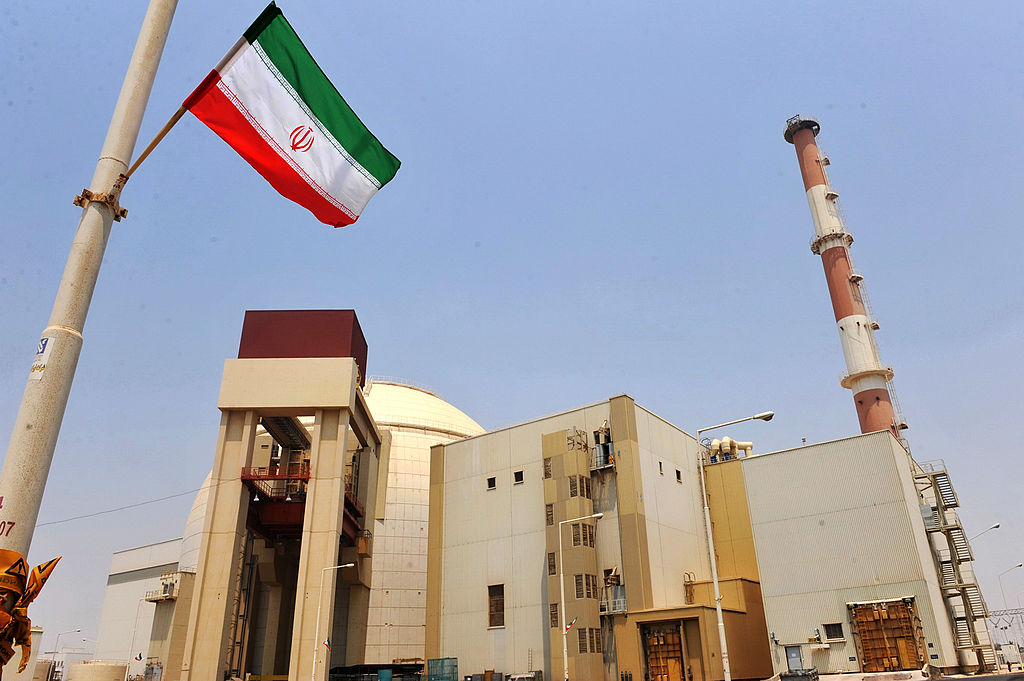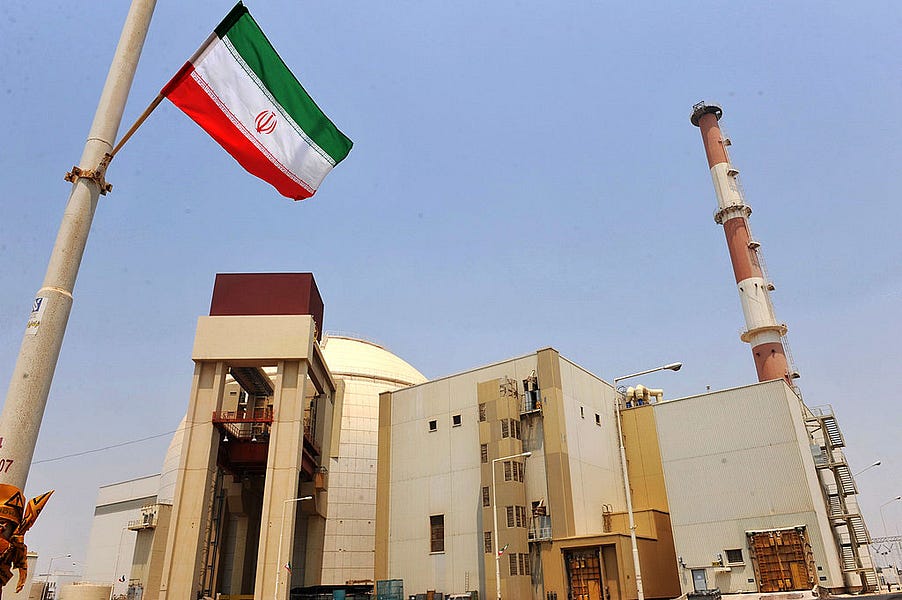Happy Monday! Our thoughts go out to the person who spent $518,000 on the ball Tom Brady threw for his “final” touchdown pass, only for Tom Brady to unretire less than 24 hours later. Should’ve bought 345 lifetime memberships to The Dispatch instead.
Quick Hits: Today’s Top Stories
-
The United Nations’ High Commissioner for Human Rights reported Sunday the number of confirmed civilian casualties in Ukraine has risen to 1,663, including 596 dead and 1,067 injured. Most of the casualties thus far have been caused by missile strikes and shelling from heavy artillery, and the agency continues to believe the true figures are “considerably higher.” More than 2.5 million Ukrainians have reportedly fled the country as refugees, and an additional 2 million are believed to be displaced within Ukraine.
-
Leaders of the Group of Seven (G7) countries issued a joint statement on Friday pledging to revoke Russia’s most-favored nation status for the purposes of international trade, cut Russia off from International Monetary Fund and World Bank financing, and more. President Joe Biden also signed an executive order Friday banning imports of Russian seafood, alcohol, and diamonds and banning exports of luxury goods to Russia. Congress is set to vote on revoking normal trade relations with Russia later this week. According to the U.S. Census Bureau, Russia was the U.S.’s 23rd-largest trading partner in 2021, with two-way trade between the countries totaling just $36.1 billion.
-
The United Kingdom on Friday sanctioned 386 members of the Russian Duma for their support of the Kremlin’s plan to recognize the independence of the Ukrainian regions of Luhansk and Donetsk. The Treasury Department issued a new round of sanctions on Kremlin officials and oligarchs on Friday as well. Russian Finance Minister Anton Siluanov told state TV on Sunday that about $300 billion of Russia’s $640 billion in reserves is unusable right now due to Western sanctions.
-
Secretary of State Antony Blinken announced Saturday President Biden had approved an additional $200 million in military aid for Ukraine “to help [it] meet the armored, airborne, and other threats it is facing.” Hours later—one day after Russian diplomats warned the U.S. they viewed weapons deliveries to Ukraine as “legitimate targets”—Russian airstrikes reportedly killed 35 people at a Ukrainian military training facility just 10 miles from the Polish border.
-
Despite record-high border crossings last year, the number of undocumented immigrants arrested by U.S. Immigration and Customs Enforcement (ICE) fell dramatically in fiscal year 2021—from 159,000 in 2018 to 143,000 in 2019 to 104,000 in 2020 to 74,000 in 2021—according to the agency’s annual report. The report outlines ICE’s “operational changes” under President Biden, including its focus on “the most pressing threats to national security, public safety, and border security” while allowing enforcement officials to “make discretionary decisions about which noncitizens to arrest, detain, and remove.”
-
Saudi Arabia’s Interior Ministry announced Saturday it had put to death 81 people convicted of various crimes in an effort to “deter anyone who threatens security or disrupts public life.” The Kingdom did not disclose how the executions were carried out, but it is believed to be the largest mass execution in Saudi Arabia’s history.
-
The European Commission and UK’s Competition and Markets Authority announced Friday they were opening an antitrust investigation into Meta (Facebook) and Alphabet (Google), probing whether the two tech companies illegally cooperated to stifle competition in digital advertising.
-
Russia’s Roskomnadzor communications regulator banned Instagram in the country over the weekend in response to Meta’s decision to temporarily permit users in some countries to call for violence against Russian invaders in posts on its various platforms. “We have temporarily made allowances for forms of political expression that would normally violate our rules like violent speech such as ‘death to the Russian invaders,’” Meta spokesman Andy Stone said. “We still won’t allow credible calls for violence against Russian civilians.”
Is the Iran Deal On the Ropes?

A little more than a month ago—according to a New York Times headline—the Biden administration seemed poised to make good on one of the president’s key campaign promises: “U.S. and Allies Close to Reviving Nuclear Deal With Iran, Officials Say.”
They’re not very close anymore. The White House’s optimism about a deal has been dealt repeated blows in the intervening six weeks, with two of the Joint Comprehensive Plan of Action’s (JCPOA) key participants—Russia and Iran—reminding the world of the risks inherent in diplomacy with rogue states. Russia launched an unprovoked and brutal attack on Ukraine and is seeking to use any deal as a way to circumvent the devastating sanctions imposed for its aggression. Iran, meanwhile, refuses to account for the secret nuclear work it conducted in the past and, over the weekend, fired a dozen missiles into neighboring Iraq that landed near a U.S. base.
Stateside, there is growing, bipartisan trepidation in Congress about the direction of the talks. “I am deeply concerned that the latest iteration of the failed JCPOA being negotiated by the Biden Administration will empower Iran, endanger Israel, and continue to threaten global security,” said Rep. Elaine Luria, a Democrat from Virginia who serves as vice chair of the House Armed Services Committee. “Any deal that would give Iran a path to a nuclear weapon or allow them to invest in terror proxies is unacceptable.”
Luria was one of 21 lawmakers who wrote to the White House on Thursday to express concerns about a deal. “Without adequately addressing Iran’s role as the world’s leading state-sponsor of terror—which was noticeably absent from the 2015 JCPOA—and simultaneously providing billions of dollars in sanctions relief, the United States would be providing a clear path for Iranian proxies to continue fueling terrorism,” they said.
They may well get their wish—for now—but not necessarily because their letter persuaded the White House. “A pause in #ViennaTalks is needed, due to external factors,” Josep Borrell, the European Union’s top foreign affairs official, tweeted Friday of the negotiations. “A final text is essentially ready and on the table.” His cryptic statement seemed to refer to an eleventh hour demand by Russia that any agreement shields its bilateral trade with Iran—an exemption that would defy recent multinational sanctions levied against Russia for its invasion of Ukraine.
And diplomatic efforts were further complicated early on Sunday morning, when Iran launched a dozen ballistic missiles into Iraq near the northern Kurdish regional capital of Erbil. The projectiles landed perilously close to the U.S. consulate’s new compound, leading some to conclude that the Islamic Revolutionary Guard Corps (IRGC)—which later took credit for the attack—had intentionally targeted American personnel. But Deputy Secretary of State Wendy Sherman told Fox News’ Bret Baier on Sunday that wasn’t the Biden administration’s view.
“We do not believe that the consulate was actually the target of this missile attack,” she said. “We are very glad that our facilities are secure, that everybody is accounted for, that no one has been hurt or killed. But all of that said, this is a great concern. … This was an attack on Iraq’s sovereignty, among other things.” One civilian was wounded, according to the Kurdish Interior Ministry.
A spokesman for the IRGC—who said the missiles targeted an “Israeli strategic center” —claimed the attack was responding to an alleged Israeli airstrike near Damascus last week. “Following the recent crimes of the fake Zionist regime and the previous announcement that the crimes and evils of this infamous regime will not go unanswered,” he said, “the strategic center for conspiracy and evil of the Zionists was targeted by powerful and pinpoint missiles of the Islamic Revolution Guards Corps.” The Kurdish regional government denied the existence of such facilities in the area.
Iraqi Prime Minister Mustafa al-Kadhimi, meanwhile, convened an emergency meeting with the country’s national security council, which described the launches as an affront to “the historical relationship that binds the people of two neighboring countries” and a “violation of international laws and norms.”
The cross-border missile attack is the fifth of its kind claimed by the IRGC in Iraq and Syria in less than five years. Most recently, Iranian forces targeted Al Asad Air Base—a military installation housing American troops—following the U.S. killing of General Qassem Suleimani in Iraq in January 2020. The attacks have gone largely unanswered.
“Make no mistake: launching an attack from Iranian territory means that the regime is confident it can avoid or offset any kinetic reprisal,” Behnam Ben Taleblu, a senior fellow at the Foundation for Defense of Democracies, told The Dispatch. “Iran believes its missile power has deterred any response to its post-Suleimani missile attack in 2020 and is coasting off of that confidence here.”
“An attack on or near an American diplomatic or military facility, no matter the Iranian caveat about attempting to strike Israeli assets, cannot be tolerated,” he continued, noting that ballistic missile systems are “qualitatively different” than drones and rockets. “This is the cost of not responding to Iran-backed aggression in the region. Attacks will beget more attacks. The freer Iran feels its hand is in the region, the more likely it is to use, test, and transfer these systems.”
But pushing ahead with a new iteration of the JCPOA remains priority one for the Biden administration. “We are very concerned about what Iran is doing, but imagine these Iranians with a nuclear weapon,” Sherman added yesterday. “We need to get that off the table so we can address their malign behavior in the Middle East, and we will do all of the above, but first we’ve got to get this deal.”
Negotiations with the Islamic Republic come at a critical moment for the White House. Following a bipartisan push from Congress, Biden announced plans last week to ban Russian energy imports from Russia, and his administration has reportedly been in talks with Venezuela and Saudi Arabia to try and fill in the gaps. Some think sanctions relief on Iranian oil is a possibility, as well. Asked on MSNBC last week if the administration could authorize the Keystone XL Pipeline or strike a deal with Iran, Transportation Secretary Pete Buttigieg said “all options are on the table.”
While the details of the proposed deal have not been shared beyond the negotiators, preliminary accounts indicate it’s likely to fall well short of the “stronger and longer” promises from the early days of Biden’s presidency. Many of the Obama-era deal’s provisions—its so-called “sunset clauses”—are set to expire in the near future, or have already done so. Among them are restrictions on Iran’s ballistic missile program.
Additional reporting indicates that the deal—which stands to extend $90 billion in sanctions relief to Tehran—would also waive sanctions on Iranian President Ebrahim Raisi and other infamous human rights abusers and remove the IRGC’s Foreign Terrorist Organization designation by the U.S. State Department.
Republicans—long skeptical of a new deal after former President Donald Trump withdrew the United States from the previous one—have been sharply critical of the Biden administration’s decision to continue working with Russian negotiators in Vienna while the Kremlin slaughters Ukrainians. “For the last year, Joe Biden has essentially been relying on Vladimir Putin to be his lawyer in these negotiations, trying to deliver—through Vladimir Putin—a new nuclear deal that would be much worse than even the terrible deal Barack Obama got in 2015,” Sen. Tom Cotton told Fox News yesterday.
But on Sunday afternoon, The Wall Street Journal reported the Biden administration will not negotiate on Ukraine-related sanctions with Russia in Vienna, and could instead seek to carve Moscow out of the talks entirely. But if Moscow or Tehran stall much longer, a return to the deal may become moot anyways: Iran’s “breakout time” to produce enough enriched uranium for a nuclear weapon is now reportedly just a few weeks.
Worth Your Time
-
In a Politico piece, Stephen Kinzer looks back at the United States’ previous attempts to assassinate foreign leaders amid rising calls to take out Putin. “Americans are impatient by nature. We want quick solutions, even to complex problems. That makes killing a foreign leader seem like a good way to end a war,” he writes. “Every time we have tried it, though, we’ve failed—whether or not the target falls. Morality and legality aside, it doesn’t work. Castro thrived on his ability to survive American plots. In the Congo, almost everything that has happened since Lumumba’s murder has been awful. Our record in carrying out regime change short of murder is hardly better. The CIA-directed overthrow of Prime Minister Mohammad Mossadegh in 1953 cast Iran into a political whirlwind from which it still has not escaped. A year later, the CIA coup against President Jacobo Arbenz of Guatemala aborted a ten-year democratic experiment and set that country on a path toward civil war and genocide.”
-
When it comes to inflation, Mercatus Center fellow Bruce Yandle argues lawmakers can’t begin to address the problem until they accept their own role in stoking it. “For too long now, our political leaders have been unwilling to accept the notion that their policies are the major source of inflation, that the inflation embedded in our economy is not transitory, that inflation is not just associated with sudden supply chain problems, and that inflation is not caused by business leaders suddenly becoming unusually greedy,” he writes for Reason. “Many analysts (and even Biden’s Council of Economic Advisers) now recognize that, fed by trillions of stimulus dollars distributed in 2020–21, surging consumer demand placed extraordinary pressures on the straining supply of home appliances, automobiles, residential structures, gasoline, paint, and even cat food. With money flooding and consumers shopping, prices had to sail higher.”
Presented Without Comment
Also Presented Without Comment
Toeing the Company Line
-
In Friday’s Uphill (🔒), Haley takes a look at how Congress has in recent weeks pushed the Biden administration into taking a more aggressive stance against Russia. “The White House wants to remain in lockstep with allied countries,” she notes, “even as members of Congress from both parties have sometimes been quicker to embrace ideas the administration or foreign partners have been wary of.”
-
To kick off Friday’s Dispatch Podcast, Steve is joined by Taras Byk, a Ukrainian and former journalist working with the Territorial Defense Forces in Kyiv. Once that wraps, Sarah and Jonah join in for a conversation about the state of the war, and its ramifications for our domestic politics.
-
David’s Sunday French Press this week focuses on two competing views of Christianity: The version being exploited for Russia’s geopolitical aims, and the version that’s inspiring hundreds of millions of people to rally to Ukraine’s defense. “In one stark moment,” he writes, “we are seeing the extremes of what Christians can do, for evil and for good.”
-
David and Curtis Chang were joined by NBA writer Jonathan Tjarks on the latest episode of Good Faith for a conversation about Tjarks’ battle with cancer, and what it has taught him about faith, family, and the power of community.
-
The culture section featured two reviews over the weekend: Haley on Karen Cheung’s book, The Impossible City: A Hong Kong Memoir, and Guy Denton on the Foo Fighters’ comedy-horror film, Studio 666.
Let Us Know
This time last year, we launched our inaugural TMD March Madness Bracket Challenge. Hundreds and hundreds of you participated, and a lucky few wound up with Dispatch-themed mugs, shirts, and Yetis. Should we do it again?
Reporting by Declan Garvey (@declanpgarvey), Charlotte Lawson (@lawsonreports), and Steve Hayes (@stephenfhayes).






Please note that we at The Dispatch hold ourselves, our work, and our commenters to a higher standard than other places on the internet. We welcome comments that foster genuine debate or discussion—including comments critical of us or our work—but responses that include ad hominem attacks on fellow Dispatch members or are intended to stoke fear and anger may be moderated.
You are currently using a limited time guest pass and do not have access to commenting. Consider subscribing to join the conversation.
With your membership, you only have the ability to comment on The Morning Dispatch articles. Consider upgrading to join the conversation everywhere.